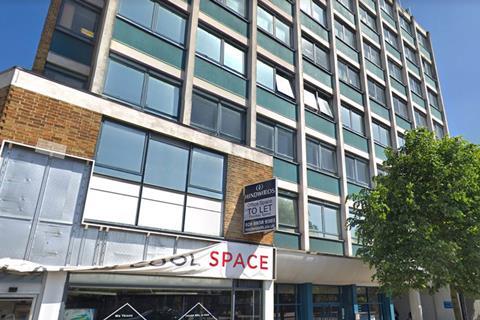Scheme that allows office-to-residential conversions results in ‘rabbit hutch’ flats, says shadow housing secretary
Industry figures have given a cautious welcome to Labour party plans to scrap the right of developers in certain instances to convert offices and commercial space into residential properties without the need for planning permission, known as permitted development rights (PDRs).

John Healey, Labour’s shadow housing secretary, said PDRs – brought in by the Conservative/Lib Dem coalition in 2013 in an attempt to speed up the delivery of homes across the UK – had allowed developers to “bypass the normal planning process by converting commercial spaces into housing without the consent of the council and local community.
“This gives developers a get-out from requirements to provide affordable housing and meet basic quality rules such as space standards creating ‘rabbit hutch’ flats,” he said.
Welcoming the commitment to scrap PDRs, Victoria Hills, chief executive of the Royal Town Planning Institute, said her organisation had long argued that PDRs “put housing affordability and design quality at risk and undermines the planning system.
“Contrary to what many think, PDRs do not alleviate councils from onerous work. Instead, they create a disproportionate administrative burden for local authorities while preventing them from collecting proper planning fees and developer contributions for affordable housing and infrastructure.”
Local authorities and local communities had to be in the “driving seat for shaping the housing and their local area as part of a planned, local vision”, Hills added.
And while 42,000 non-residential units have been converted into homes, the PDRs scheme has been seen by some as a way of getting round some housing regulations.
Quoting research by RICS, Labour’s Healey said PDRs had “allowed extremely poor-quality housing to be developed”, with only 30% of homes built through the scheme meeting national space standards.
Peter Hogg, UK cities director at consultant Arcadis, said converting redundant or disused offices into residential property could be a “quick, cost-effective and environmentally responsible way to provide much-needed homes”.
But he warned that any conversion had to be “properly thought out and executed, and must provide homes and communities of a quality that genuinely improve quality of life and are great places to live, work and play.
“What we don’t want are poor-quality conversions or the use of permitted development rights to avoid meeting acceptable standards for residential accommodation.”
Ben Derbyshire, president of the RIBA, tweeted that his organisation was “baffled as to how government can be rightly concerned to ‘Build Better, Build Beautiful’ on the one hand, yet support the pernicious permitted development right to convert offices to substandard homes on the other”.
And Brian Berry, chief executive of the Federation of Master Builders said that while not all permitted development was bad, his organisation “completely accepts the point that we must prevent ‘rabbit hutch’ homes without windows” being created.
“Tiny uninhabitable homes are not something the FMB would ever support,” he said, adding that the FMB would like to see proposals from Labour “regarding how we can more easily convert empty spaces above shops”.
But Akeel Alidina, managing director at Caridon Property, which manages 1,000 low-income homes and has undertaken a number of office-to residential conversions, argued scrapping PDRs “would hurt the poor and most vulnerable […] by reducing their housing options and also removing the one single policy that has done most to boost new housing supply in recent years”.
Alidina said: “Without PDRs, we wouldn’t have been able to create the hundreds of low-cost homes we manage today. Many of these flats house people who would otherwise be sleeping rough on the streets, or stuck in a B&B or hostel.
“By making housing more compact we can make it more affordable,” he added.










No comments yet